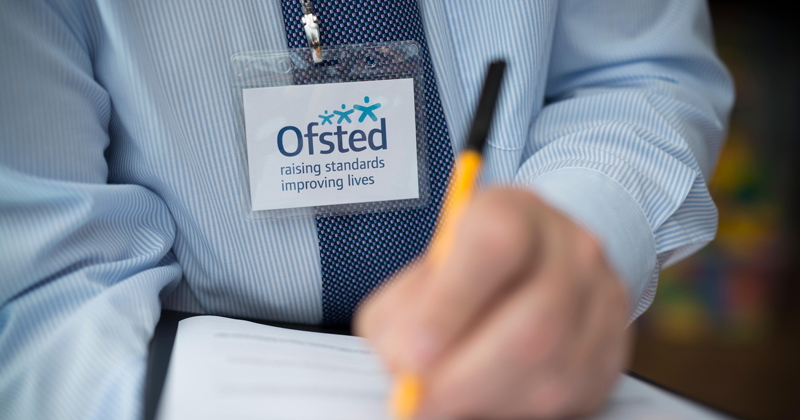A headteacher in Berkshire said she would refuse Ofsted inspectors entry to her school, amid the fallout over the death of headteacher Ruth Perry, before backing down following talks with the watchdog and council.
But other leaders showed support for stance, and some are considering whether they can take action to show their discontent with the inspectorate.
Perry’s family say she took her own life in January before the publication of an inspection report rating the school ‘inadequate’.
Three education unions – NAHT, ASCL and the NEU – have called for a halt to inspections. They say this is a “watershed” moment for the inspectorate, and are now calling for “fundamental reform” of a system they say puts “intolerable pressure” on heads.
Perry’s sister, Julia Waters, has suggested that leaders should “boycott Ofsted until a thorough, independent review has been conducted and changes implemented”.
Here’s what you need to know on the rules and law relating to boycotting Ofsted …
1. Obstructing inspections is a criminal offence
Under section 10 of the Education Act 2005, when inspecting a school, the chief inspector has at “all reasonable times” a right of entry to the premises.
This relates to section 5 (graded) or 8 (ungraded) inspections – the most common for schools. Chief inspectors can delegate their powers and rights to inspectors for the purposes of inspection.
To “intentionally obstruct” this right is an offence that carries a maximum fine of £2,500.
It is also a criminal breach of the law, meaning it could go onto criminal records, according to education support service Edapt.
Schools can request Ofsted deferrals, but they are only granted in exceptional circumstances.
2. But what counts as ‘intentionally obstructing’?
Guidance from the Crown Prosecution Service states that for an inspector to have been obstructed, their “work must have been made more difficult by the defendant”.
The obstruction must have been “wilful”, with the defendant having acting deliberately, knowing and “intending” their act to obstruct the inspector.
The inspector also must have been engaged in “functions” related to the inspection at the moment of their obstruction by the defendant.
Edapt said “this indicates that it is not just physical obstruction that is relevant here, but rather an intentional disruption of the inspection process”.
3. What are the implications for heads?
As well as committing a criminal offence, the Edapt guidance says leaders should consider the consequences for their employment.
“It is likely that refusal of this sort could be deemed to be a breach of contract with their employer as it is likely that any contract would have an implied term to support any Ofsted process,” the company said in a blogpost.
As a result, such conduct could be deemed as ‘gross misconduct’ leading to suspension or dismissal.
Where a criminal offence is committed, the threshold for a gross misconduct is more likely to be met.
And leaders are also told to be wary of posting their intentions publicly, including via social media.
“This could lead to an argument being made that this could bring the school or employer into disrepute,” said Edapt.
4. … and for teachers?
Teachers joined in what looked like silent protest outside John Rankin school this morning, others have also shown support for such action on social media.
A survey of more than 9,000 teachers by Teacher Tapp yesterday showed 46 per cent would ‘strongly support’ headteachers boycotting Ofsted and refusing to let inspectors enter schools.
Legally speaking, teachers are not liable for decisions made by their headteacher. But there could be potential consequences if they support the action.
Teachers could be seen to be following instructions from their managers, but such a protection may not apply where they underline their own intentions through either social media or taking part in a protest.
It is also worth noting that collective action, in the form of a protest of boycott, could be deemed as ‘action short of a strike’.
Where taken without an official ballot, this could be deemed as ‘unofficial’ industrial action, meaning legal protections would not apply.
Those taking part, according to Edapt, could be in breach of employment contracts.
5. Support could also fall foul of misconduct rules
The Teachers’ Standards state teachers “must have an understanding of, and always act within, the statutory frameworks which set out their professional duties and responsibilities”.
Breaches can lead to Teaching Regulation Authority referral. The body oversees professional conduct hearings and can ban teachers who are found guilty of misconduct.
It means those not directly involved in any boycott action may need to be cautious when expressing their support, according to Edapt. They warned “inappropriate actions could be deemed to bring your employer into disrepute or potentially in breach of the Teachers’ Standards”.
















[…] “But someone has to.” In the end she let the inspection proceed – obstructing it risks a £2,500 fine – but her stand felt like a Spartacus moment for teaching […]